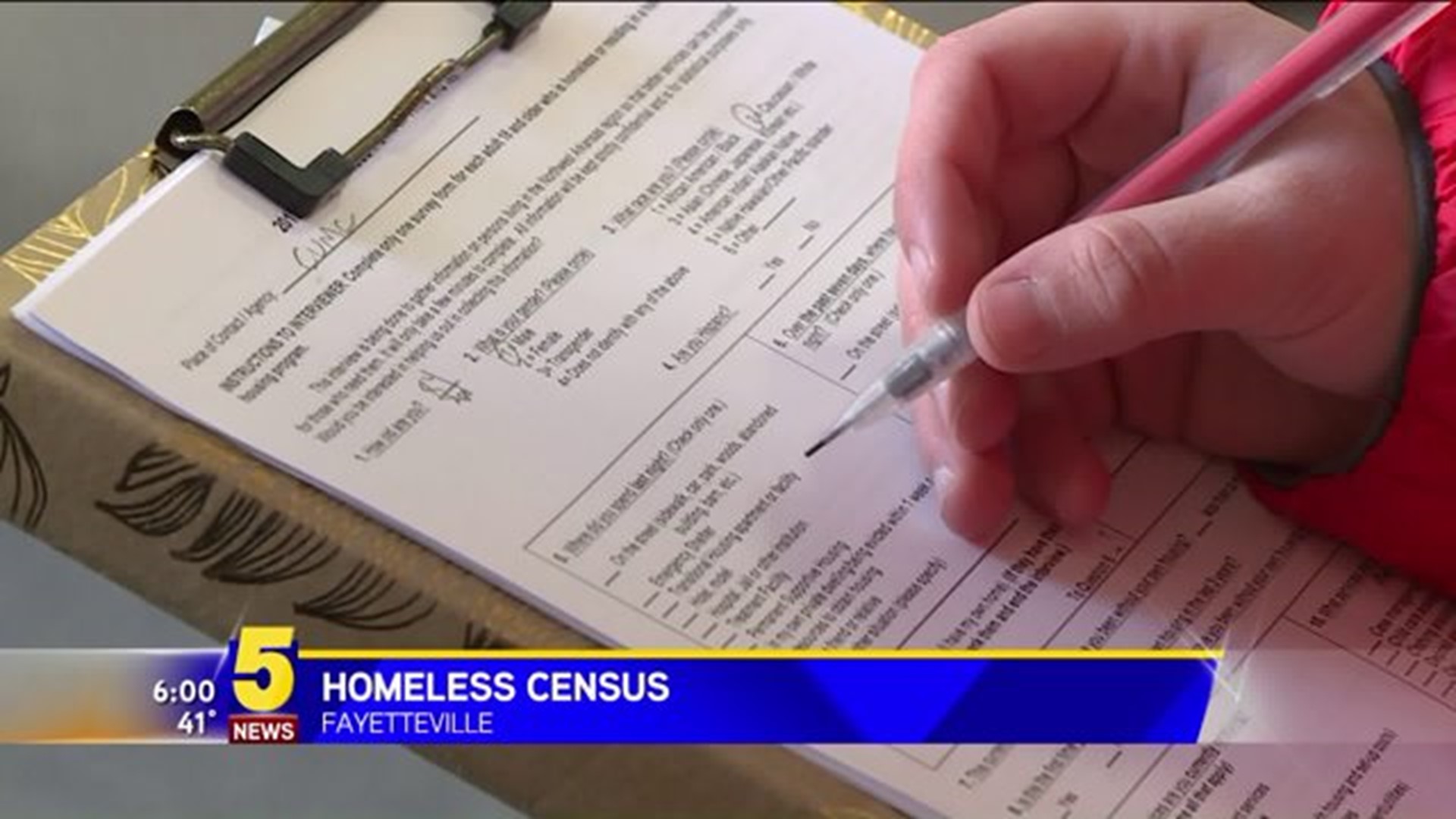FAYETTEVILLE (KFSM)-- As the general population in Northwest Arkansas grows, the homeless population is growing even faster.
This is according to a census done by the Community and Family Institute at the University of Arkansas. They conduct a survey where they count and interview homeless people every two years.
They have been doing this census in Benton and Washington counties since 2007.
The institute is conducting the census this week and the data is used by local agencies who help homeless people to apply for federal grants.
Michelle Rowell and her husband are currently living in a fifth-wheel after they had to leave their trailer home.
“It's hard to get on your feet, you know it really is. You get fed up and discouraged and pretty soon nobody wants to work and what do you do,” Rowell said.
Rowell knows there are a lot of people in the area in the same situation.
“Arkansas is really good for taking care of their homeless people because I haven't gone without food for sure...everything else maybe...no electric, no water, you know those kinds of things but we make it,” she said.
Director of the community and family institute professor Kevin Fitzpatrick said the homeless population has more than doubled since 2007.
“The growth in the region in the general population has been about 6 percent. The growth in homeless population has been about 115 percent,” Fitzpatrick said.
Fitzpatrick said one of the biggest factors that leads to homelessness is the lack of affordable housing and some people work full-time and still cannot afford their own place and have to live with friends or family.
“That's an important part of the narrative of homelessness in Northwest Arkansas and places around the country, that we cannot just focus on those who are most visible but rather the ones who are invisible, like those who are doubling up with friends and relatives,” he said.
Since the census started those agencies have received $3.5 million in federal funds.

